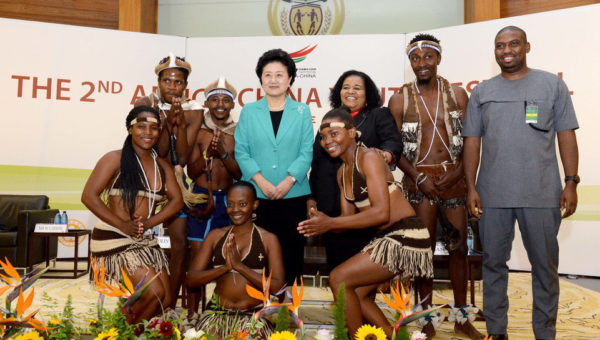A lot has been said about Africa not being prepared to meet its needs in skills required for the future. The French think-tank Institut Montaignestudied recruitment processes in the digital business world. According to the institute, in Africa, it is difficult to recruit for positions requiring digital skills. I agree.
I also agree that the digital transformations that are revolutionizing the world will affect Africa even more. I agree that 85% of future jobs that will make up the working world by 2030 are not yet known today, and that the digital job sector will grow from 20% to 30% in Africa during the coming years.
Therefore, I agree that the continent’s future is uncertain with regard to the jobs and training system needed to acquire the necessary skills that will be required at that time…
However, I would like to paint a more positive picture (I cannot change the way I think!) of developments in the sphere of higher education targeting digital skills in Africa and also business schools…
Local top-level higher education is emerging in science and technology. Even if it is not yet accessible to the majority, the African Institute for Mathematical Sciences (AIMS), a Pan-African network composed of higher education and research centers of excellence based in Rwanda, enables the brightest students in Africa to become innovators whose work and research are geared towards meeting the needs of the continent. The head of the Google Artificial Intelligence Research Center in Ghana, Moustapha Cissé, launched the first Master’s degree in Artificial Intelligence in Africa. Classes started in September 2018 and students will have the same opportunities as students from major American or European universities. As is often the case with this type of initiative, Facebook and Google are part of the adventure: they provide financial support and the best specialists.
This year, Google also launched its digital skills training program for Africa in Sokoto, Nigeria. These online courses for students, educators, job seekers and corporate staff provide basic skills for the digital world. They are already offered in many French universities, for instance.
Another country, another example: in February 2019, the French network of computer schools, Epitech, which offers one of the best bachelor degrees in computer science in France, among other things, will open its first African campus… in Benin! Thirty to thirty-five students will start their training in February. For the first graduating class, the year will end in October 2019 with a 4 to 6-month internship in a company. Although tuition fees were reduced considerably to align with the local standard of living, they are still close to 2,000,000 CFA francs (just over 3,000 euros) for the first two years and 2,500,000 CFA francs for the third year (about 3,800 euros).
As a recruiter, I was able to assess the quality of graduates from other higher scientific programs provided by schools in West Africa, such as INP-HB in Côte d’Ivoire or 2iE in Burkina Faso. I have often recruited graduates from these schools who have a few years of working experience. They are training programs that employers value.
Besides that, the conventional African business schools with an emerging regional reach are attracting investment funds.
The investment funds’ raids of African business schools is also a positive indicator.
Higher education is attracting investment funds that are purchasing, around the world, higher education institutions that have often been abandoned by the public education system. Africa is also a recipient to this wave of … funds.
The Galileo Fund, leader of the European education market, has bought Institut Supérieur de Management (ISM) in Dakar that its founder, Amadou DIAW, succeeded in making one of the top West African business schools over a period of 25 years. The purpose was to include it in a broader Pan-African project. Similar projects are being carried out in India.
The same goes for the group Institut Africain de Managementwhich opened its capital to Emerging Capital Partners (ECP) to accelerate its development and integrate a continental project.
Similar examples are flourishing in East Africa and North Africa.
It is important to acknowledge the work of these schools, that promote exchanges and inter-African cultural mingling and offer 100% African business cases, while remaining open to the world through partnerships with top international business schools. Hanane el-Kouari, Executive Director of the Association of African Business Schools says the same thing: “African schools have a knack for launching projects, initiatives with such ease that it astounds many major global business schools.” The institution she manages currently covers 50 establishments and is working on a Pan-African accreditation project that is as prestigious as its Western counterparts. Good luck!
As is the case elsewhere, Africa will embrace the shift in higher education and employment to digital and business professions. However, in order to ensure that accessibility is not limited to a small number, more creative and flexible solutions involving the African diaspora around the world will have to be found.
“We are not necessarily from the place where we are born. There are seeds that the wind likes to sow elsewhere,” Dany Laferrière said.
And, today, other winds bring the plants back to their original lands…
Subject of my next paper.
Source:
- http://afrique.lepoint.fr/economie/etudier-hanane-el-kouari-les-organes-d-accreditation-sont-plus-a-l-ecoute-de-l-afrique-et-de-ses-specificites-24-09-2018-2253653_2258.php
- http://afrique.lepoint.fr/actualites/numerique-en-afrique-c-est-la-formation-qui-fera-la-difference-en-afrique-02-02-2018-2191734_2365.php
- http://energetic.fr/?p=262
- http://www.institutmontaigne.org/publications/prets-pour-lafrique-daujourdhui
- https://issuu.com/objectif-developpement/docs/savoirs-communs-17-education


